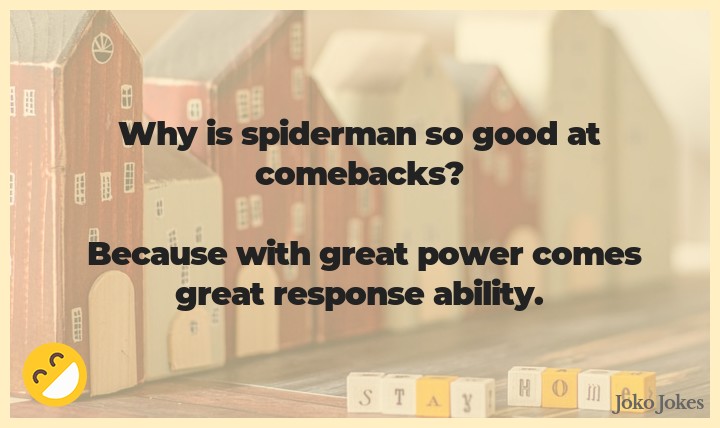While maybe not surprising to long-term readers who have been following since I wrote an article defending communism, I am now writing an article about how maybe we could all use a little less freedom. George W. Bush was right: we hate your freedoms, and we’re coming to take them away. Sorry America, but the terrorists just had the better argument. Blame the free market of ideas, and then marvel at the irony.
The thing is, freedom is actually a paradoxical ideology. Universal freedom is necessarily contradictory. The current “debate” about masking during a pandemic is case-in-point. If you are free to disregard masks and parade around mouth-breathing your aerosol droplets all over me, my freedom to avoid getting sick from Covid is reduced. There are millions of examples you can come up with: my freedom to be verbally abusive limits your freedom from verbal abuse. If you are free to make puns, it renders my freedom to live in a world without puns sadly utopian. If you believe yourself free to cheat on your monogamous partner and your excuse is, “I thought this was America!”, you will quickly discover that people aren’t super thrilled when your alleged freedom impinges on their own.

Am I entitled to mature and well-developed humour? Maybe not. Am I entitled to health? This point becomes harder to argue against. Am I entitled to health that is not being actively damaged by the choices of others? It would probably be a good idea to have a society that adopts that mentality, yeah. The issue is that the debate never focuses on the issues impacted by the free actions of others, and the freedoms they might be reducing in turn. It typically focuses on ‘freedom’ as an abstract, unexamined concept that just has that certain je-ne-sais-quoi that most people find appealing. Even those denouncing the demands of those freedom-loving anti-maskers won’t condemn the concept of freedom itself, but you heard it here first: freedom the way most people imagine it is a masturbatory fantasy.
Freedom advocates would argue that freedom should not exist completely deregulated, but that the only reasonable regulations are negative ones: you can’t murder, for example, but you shouldn’t be compelled to act in any particular way. Hence, you can’t make me put on a mask, you commie! However, the limits on negative regulation are arbitrary. Being forbidden from making puns is a negative regulation, but I have yet to come across a libertarian seriously making this argument despite its expansive merit. The distinction between negative and positive impositions on freedom is completely meaningless, and doesn’t address my original point that all the actions we take are going to be affecting those around us in ways that may well reduce their freedom. While this is a small case of conjecture, I can speculate that the ‘true believers’ would say that those who are negatively impacted by their free actions should just suck it up; they should content themselves with having less freedom than others. Sounds completely reasonable and not at all systemically oppressive.

Freedom is a pretty great idea. I like being able to do things, but I also recognize that I am one individual among many with equal entitlement to the things that I ought to be entitled to. I want to be healthy, but I have to recognize that everyone else wants to be healthy too. I want to live in a world without puns, but I have to recognize that other people have the wrong sense of humour, and I just have to live with their wrongness. If I begin to act in a way that limits the puns of others using my own freedom to coerce their behaviour, I am limiting their freedom to make awful “jokes.” I would appreciate the same consideration when I make delightful and well-timed fart jokes from the plebeians that simply don’t understand the nuance!
When we recognize the needs of others as equally requiring consideration, we recognize that we must be responsible to those needs and our freedom must be curtailed. If we disregard the needs of others, we are not actually advocating for universal freedom, we are demanding selfish preference. Freedom is not generalizable, but the great thing about responsibility is that it is! Everyone is capable of shouldering equal amounts of responsibility to their neighbour. An argument could be made that some parties may be more responsible than others (more polluting nations are more responsible for reining in their carbon emissions to address climate change, for example), but aspirational responsibility is not as contradictory as aspirational freedom.

Viktor Frankl is quoted as saying that America needs a Statue of Responsibility to temper its Statue of Liberty, and his worries are coming to deadly fruition today. Politicians and pundits that espouse and proselytize freedom can only be pandering to the selfish ego of their followers, by the very nature of the ideology they are spouting. The purposeful disregard and neglect of one’s neighbour is the disregard and neglect of their freedom. I guess the point is you’re not supposed to give a shit about your neighbour because your freedom is the only freedom that matters.
Let’s instead work toward a universal responsibility. It’s not particularly difficult because it’s something that can be adopted in every action. We can be responsible to others as individuals; it can be foisted upon our politicians and other macro-level actors sure, and adopted by corporations and those on the mezzo level too. Everyone can be responsible. The less we focus on a pointless concept like freedom, the more we can focus on taking care of one another. I think the world would be much better off, and we’d probably have fewer Covid cases too.
A Rabbi, an Imam, and a Priest walk into a bar. The bartender says “what is this some kind of joke”
At least this wasn’t a pun.
A man walks into a bar and sees a tiny piano player playing on the bar. The man says to the bartender, “That’s incredible! Where did you get this?” The bartender replies, “There’s a magic lamp in the dumpster out back.” The man rushes to the alley behind the bar and quickly finds the lamp. He rubs it and out pops a genie who asks him to make a wish. “I wish for a million bucks!” says the man. All of a sudden, a cascade of ducks floods the alley, quacking raucously. The man, furious, storms back into the bar and says, “That genie is a rip off! I asked for a million bucks, and it gave me a million ducks!” The bartender replies, “What? You really think I asked for a 12 inch pianist?”
I’ve got Popper on the brain, and this reminds me of his Paradox of Intolerance. It’s also why I object to his proposition that we shouldn’t burden outselves with definitions. As you note, freedom has as many definitions as there are people. Even the haters.
I’m not a fan on deontological systems, but I am a fan of religious bar humour.

It’s very much in line with the Paradox of Intolerance. Reflecting on this post, I’ve been thinking that the fetishization of freedom is almost, if not wholly, fascistic in its veneration of freedom for the in-group at the expense of the freedom of the out-group – certainly gains credence from the direction of “freedom-loving” groups of today. With the juxtaposition of all-encompassing acceptance on one end of the spectrum and all-encompassing freedom on the other, both paradoxes in their own right, you can really explore the big issues of our day.
Or we can keep the bar-themed jokes rolling:
A piece of string walks into a bar, but the bartender quickly shoos it out, shouting, “We don’t serve string here!” The string leaves, dejected, but then has an idea. It twists itself into a complex pattern, and shears away at its tips. The string returns to the bar, and the bartender says, “Hey, aren’t you that piece of string I chased out of here!?” The string replies, “No, I’m a frayed knot!”
Thanks for rendering the image… and the extended string bit… 😉
[…] garbage fire found me. I won’t get into it. Anyway: freedom! That’s never been a toxic buzzword belying oppressive undertones! Let’s get into […]
[…] All those dead children are the broken eggs intrinsically linked to this omelet of ambiguous “freedom.” Unadulterated “freedom to” with no regard to “freedom from,” this […]
[…] libertarian to insist that there be no suppression on the expression of that meaning (undeniably within reason). This is why modern day libertarians insist that current oppression is either rooted in biological […]